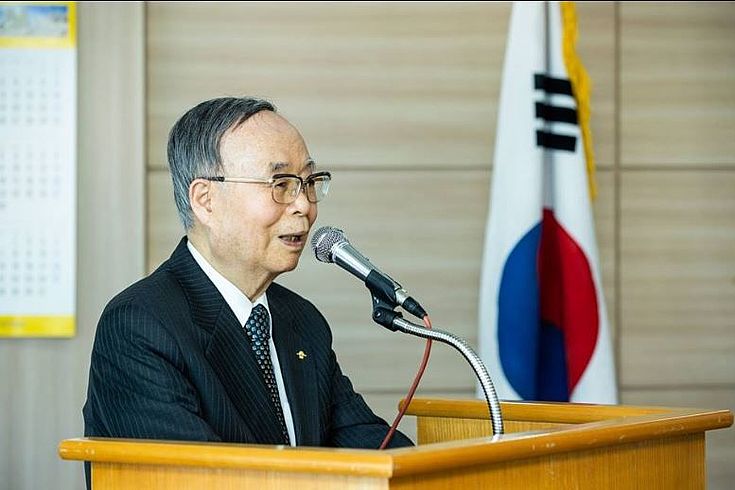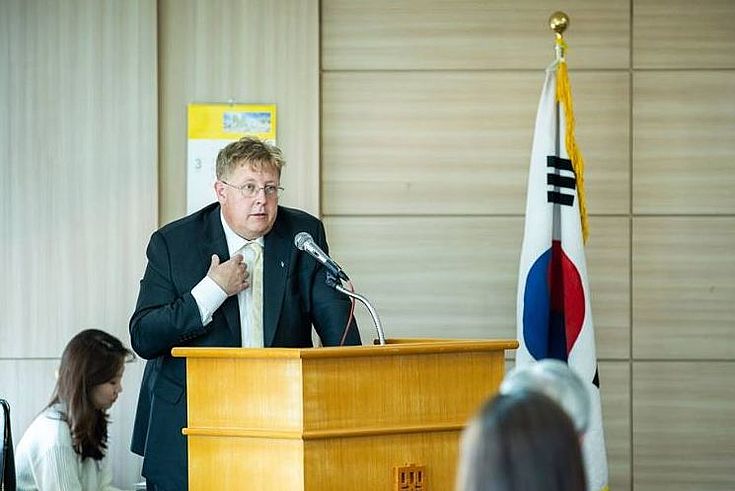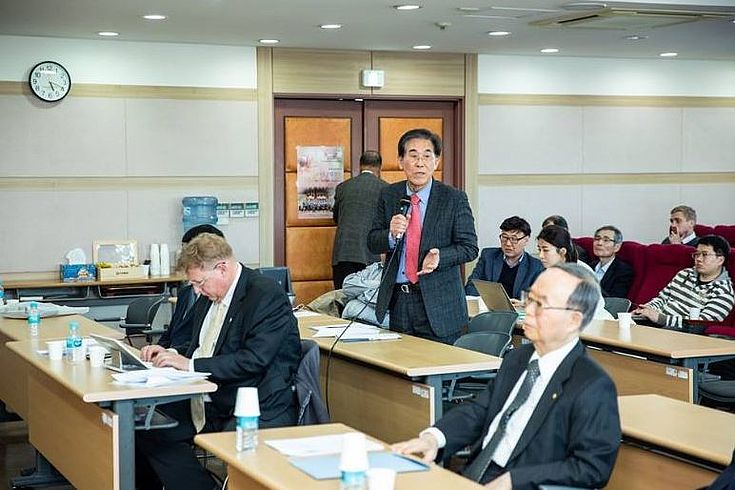Forum
The Role and Breakthrough in a Stalemate of the US-DPRK Negotiation

Opening remarks by Son Jae-Shik, former Minister of Unification, Chairman of the Tongil Hankuk Forum
On April 4th the 25th Tongil Hankuk Forum took place. After welcoming remarks by the President of Tongil Hankuk Forum, Son Jae-shik, former Minister of Unification, and President Shin Yong-Seok of the Institute for Peace Affairs, Dr. Bernhard Seliger, representative of Hanns-Seidel-Foundation in Korea, recalled the history of Cold War disarmament talks in Europe. After a positive first meeting of Ronald Reagan and Michael Gorbachev in Geneva in 1985, the next meeting in Rejkjavik in 1986 broke down after the Soviet Union rejected the demands of the USA. But only a few months later, negotiations restarted, largely on the lines the USA had demanded and led to successful détente in Europe and beyond. While history does not necessarily repeats, it can anyway be instructive. Dr. Seliger also called for new, innovative ways of inter-Korean humanitarian cooperation and increased people-to-people exchanges like students’ exchange. This could even be done under the current framework of sanctions.

Remarks by Dr. Bernhard Seliger, Hanns-Seidel-Foundation Korea
The roundtable discussion was chaired by Cho Kon-shik, former Vice Minister of Unification and currently guest professor at Halla University. The first discussant was Dr. Shin Beom-Cho, head l of the Asan Institute Center for Security and Unification. He was skeptical about the will of North Korea to denuclearize. He nevertheless predicts further negotiations in the coming time. The second discussant, Dr. Woo Chong-Yeob of Sejong Institute, where he directs the center for American studies, concurred about the will of both sides to talk. But he also wonders if North Korea would accept the conditions hammered out by Trump, Pompeo and Bolton at the Hanoi meeting. Prof.Jung Dae-Jin of the Unification Research Center of Ajou University qualified the first summit meeting of Trump and Kim Jong-Un as the victory for Kim, with a largely unprepared US president, but the second summit meeting as a victory for Trump. Now, sanctions would start to bite and North Korea would have to take a decision if to accept conditions of denuclearization. Last but not least, Dr. Lee Sang-Keun of the Institute for National Security Strategy, demanded very thorough bilateral cooperation of the US and South Korea, since he predicts new negotiations between the US and the North.

Discussion with the audience
A lively discussion followed, in which all discussants tried to come to a common understanding of the central notion “denuclearization”. While being central, North Korea obviously has a different understanding than the US and South Korea.
Finally, the discussion was concluded by remarks by President Shin Yong-Seok of the Institute of Peace Affairs, which is founder of the Tongil Hankuk Forum.
